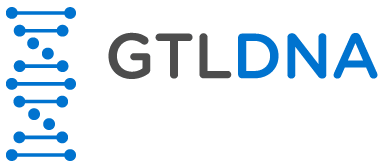DNA Mutation
Mutations are changes in the structure of the DNA. Small mutations are called point mutations and take place on the level of base pairs on the DNA. In this case, a base on the DNA pairs up with a wrong partner. Some genetic mutations can be indeed large and affect a whole chromosome as happens in Down syndrome in which affected individual have an extra chromosome, giving them a total of 47 chromosomes. Mutations are part of evolution and they can be both harmful and beneficial. Our survival as a race depends on our ability to adapt to our environment which is dependent, at least in part, on the mutation of our DNA.
Genetic mutation can be brought about by exposure to radiation or can happen naturally during mitosis (cell replication) which results in the formation of two nuclei and the replication of the genetic content of the cell. Mutations can happen during one’s life or they can be inherited from parents. Hereditary mutations are present in the egg or sperm and will often results in the mutation present in every cell in the individual’s body. In Paternity DNA Testing, a mutation in one of the alleles in a cell does sometimes results making the percentage of inclusion of paternity slightly lower than normal.
